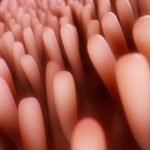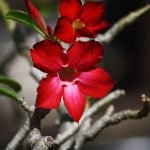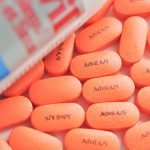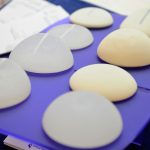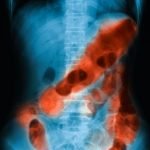Researchers Find Possible Cellular Mechanism for Autoimmune Disease
Recent research from National Jewish Health has revealed a cellular trigger for autoimmune disease. Autoimmune disease affects between 25-50 million people in the United States, with an interesting gender bias towards women (estimates of around 80% of autoimmune cases are women). The reason for this bias may have to do with an increase humoral immune response, 1 and this current research may have unpacked further what is driving this autoreactivity of the immune system.
T-bet Deletion Research Results
The research team at National Jewish Health studied Age-associated B Cells (ABCs), and found that there is a transcription factor, T-bet, inside these B cells that cause ABCs to develop and drive autoimmunity.2 It has been previously confirmed that ABCs are drivers of autoimmunity3, but not exactly by what mechanism. This research showed that when T-bet was deleted inside B-cells in mice, genetically prone to develop autoimmune disease, the mice remained healthy. The same process is believed to occur in humans.
The ABCs of T-bet Activation
ABCs are a subset of B cells that have in increased responsiveness to TLR7 and TLR9 ligands, and both normal and pathological response.3 Their differentiation is determined seemingly being driven by T-bet to either healthy immune response to viral or bacterial pathogens, or autoimmune disease.2 It appears that T-bet is somehow activated inside the cell when a combination of receptors on the B cell’s surface are stimulated (TLR7 and IFN-g).2
Research Reveals
The research study showed that autoimmune-prone mice that were bred without the ability to express T-bet inside B cells remained healthy, and had a 90% survival rate past 12 months – these mice actually did not develop ABCs. The same autoimmune-prone mice with T-bet present, developed autoimmune conditions as expected, as well as 80 percent experiencing kidney damage and 75% dying before 12 months.
Sources
- Fairweather D, Frisancho-kiss S, Rose NR. Sex differences in autoimmune disease from a pathological perspective. Am J Pathol. 2008;173(3):600-9.
- K Rubtsova, AV Rubtsov, JM Thurman, et al. B cells expressing the transcription factor T-bet drive lupus-like autoimmunity. Journal of Clinical Investigation, 2017; 127 (4): 1392 DOI: 10.1172/JCI91250
- Naradikian MS, Hao Y, Cancro MP. Age-associated B cells: key mediators of both protective and autoreactive humoral responses. Immunol Rev. 2016;269(1):118-29.
 Node Smith, associate editor for NDNR, is a fifth year naturopathic medical student at NUNM, where he has been instrumental in maintaining a firm connection to the philosophy and heritage of naturopathic medicine amongst the next generation of docs. He helped found the first multi-generational experiential retreat, which brings elders, alumni, and students together for a weekend campout where naturopathic medicine and medical philosophy are experienced in nature. Three years ago he helped found the non-profit, Association for Naturopathic ReVitalization (ANR), for which he serves as the board chairman. ANR has a mission to inspire health practitioners to embody the naturopathic principles through experiential education. Node also has a firm belief that the next era of naturopathic medicine will see a resurgence of in-patient facilities which use fasting, earthing, hydrotherapy and homeopathy to bring people back from chronic diseases of modern living; he is involved in numerous conversations and projects to bring about this vision.
Node Smith, associate editor for NDNR, is a fifth year naturopathic medical student at NUNM, where he has been instrumental in maintaining a firm connection to the philosophy and heritage of naturopathic medicine amongst the next generation of docs. He helped found the first multi-generational experiential retreat, which brings elders, alumni, and students together for a weekend campout where naturopathic medicine and medical philosophy are experienced in nature. Three years ago he helped found the non-profit, Association for Naturopathic ReVitalization (ANR), for which he serves as the board chairman. ANR has a mission to inspire health practitioners to embody the naturopathic principles through experiential education. Node also has a firm belief that the next era of naturopathic medicine will see a resurgence of in-patient facilities which use fasting, earthing, hydrotherapy and homeopathy to bring people back from chronic diseases of modern living; he is involved in numerous conversations and projects to bring about this vision.




